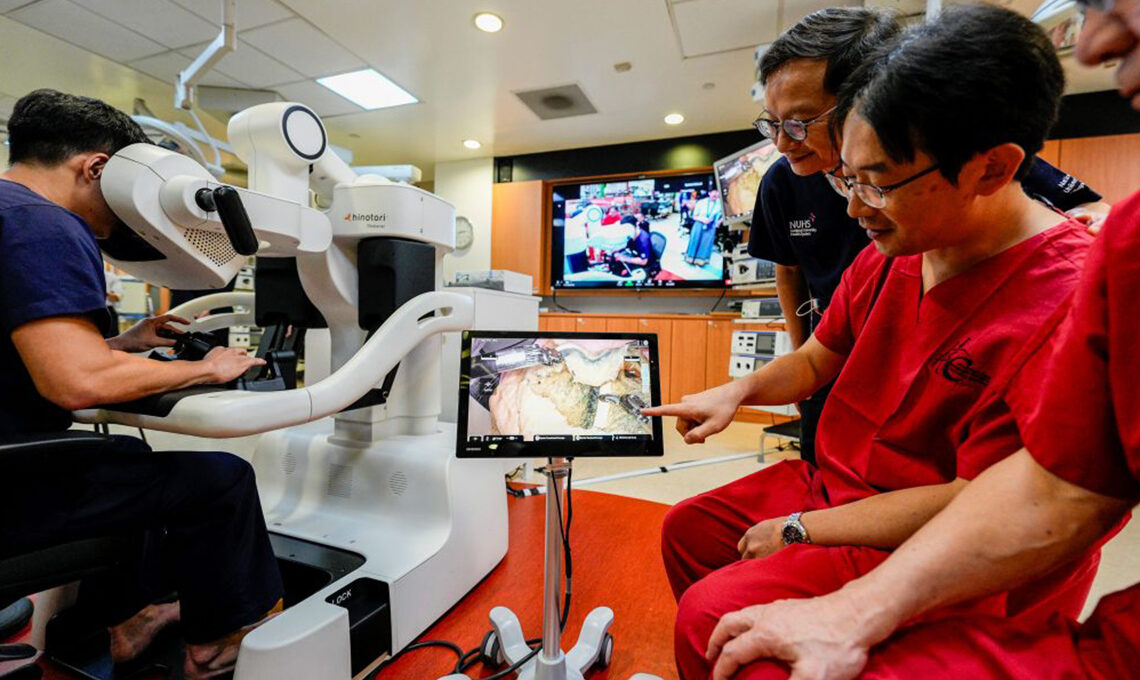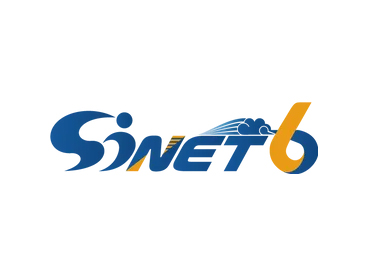
Robotic telesurgery across international boundaries
SingAREN, with international and local partners, enabled the first remote robot telesurgery trial between Japan and Singapore
NUS Yong Loo Lin School of Medicine (NUS Medicine) and National University Hospital (NUH) collaborated with Fujita Health University (FHU) in its first robotic telesurgery trial between Singapore and Japan, from 9 to 11 October 2023.
Leveraging Japan’s first surgical robot, clinician-scientists from NUS Medicine and NUH remotely performed a gastrectomy (stomach surgery performed for cancer) from a surgeon cockpit in the Advanced Surgery Training Centre at NUH in Singapore, the teaching hospital of the NUS Yong Loo Lin School of Medicine.
The surgeons’ movements were transmitted, directed, and replicated by a robotic operation unit located in Japan as well as haptic feedback in the reverse direction. These signals were transmitted via a low latency, high bandwidth, resilient international network that meets the requirements of the device to ensure smooth and realistic remote surgery.
The advanced network that enabled this telesurgery trial between Singapore and Japan, was established through the cooperation of several research and education networks under the framework of a domestic collaboration, CINJI (Coalition of Interoperable Networks for Japan and International), and an international collaboration, APOnet (Asia Pacific Oceania Network). The networks involved were SINET (Tokyo – Singapore), JGN (Tokyo – Singapore via Hong Kong), ARENA-PAC (Tokyo – Singapore via Guam) and SingAREN (Singapore Advanced Research and Education Network).
Through the cooperation of these networks, three different international redundant routes were established between the two sites, which created a highly robust telesurgery environment.
The preclinical trial – involving a series of complex gastrectomy procedures conducted by both teams – proves that long-distance robotic telesurgery for technically demanding procedures can be safely conducted using a robotic system connected by high-speed fiber-optic communication.
Professor Jimmy So from the Department of Surgery, NUS Medicine, and Senior Consultant in the Department of Surgery, NUH, who led the surgical team in Singapore, said, “Remote telesurgery offers immense potential to enhance global access to specialised care, reduce travel and wait times for patients, minimise health risks during emergencies and pandemics, and foster training and collaboration among medical professionals worldwide. It also contributes to improved surgical expertise for complex cases, particularly benefiting underserved areas.”
This is a modified version of a story first published on the SingAREN website
Image: Surgeons from NUH and FHU demonstrating how the console unit in Singapore controls the four robotic arms in Nagoya, Japan. (Photo Credit: National University Health System)
For more information please contact our contributor(s):




